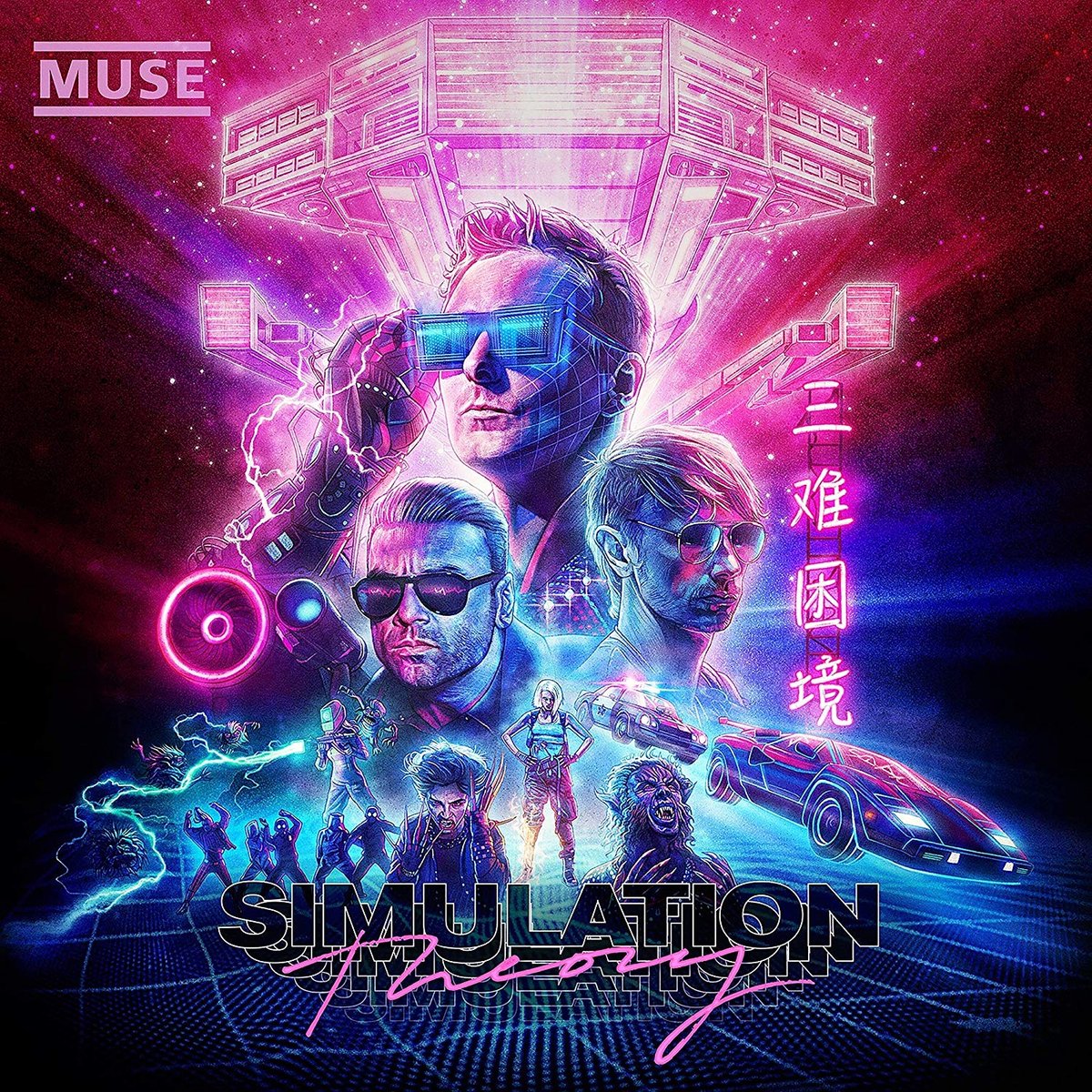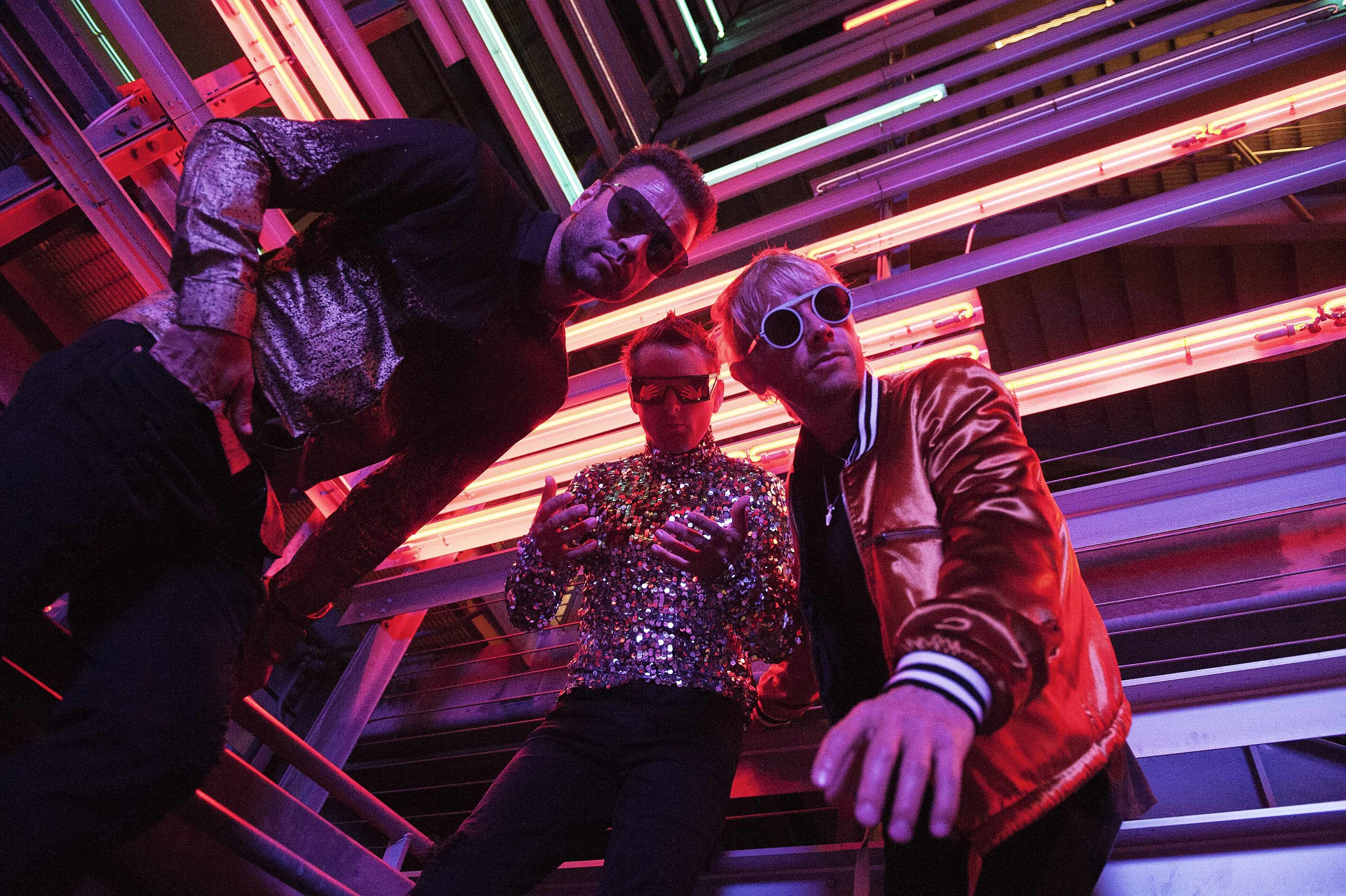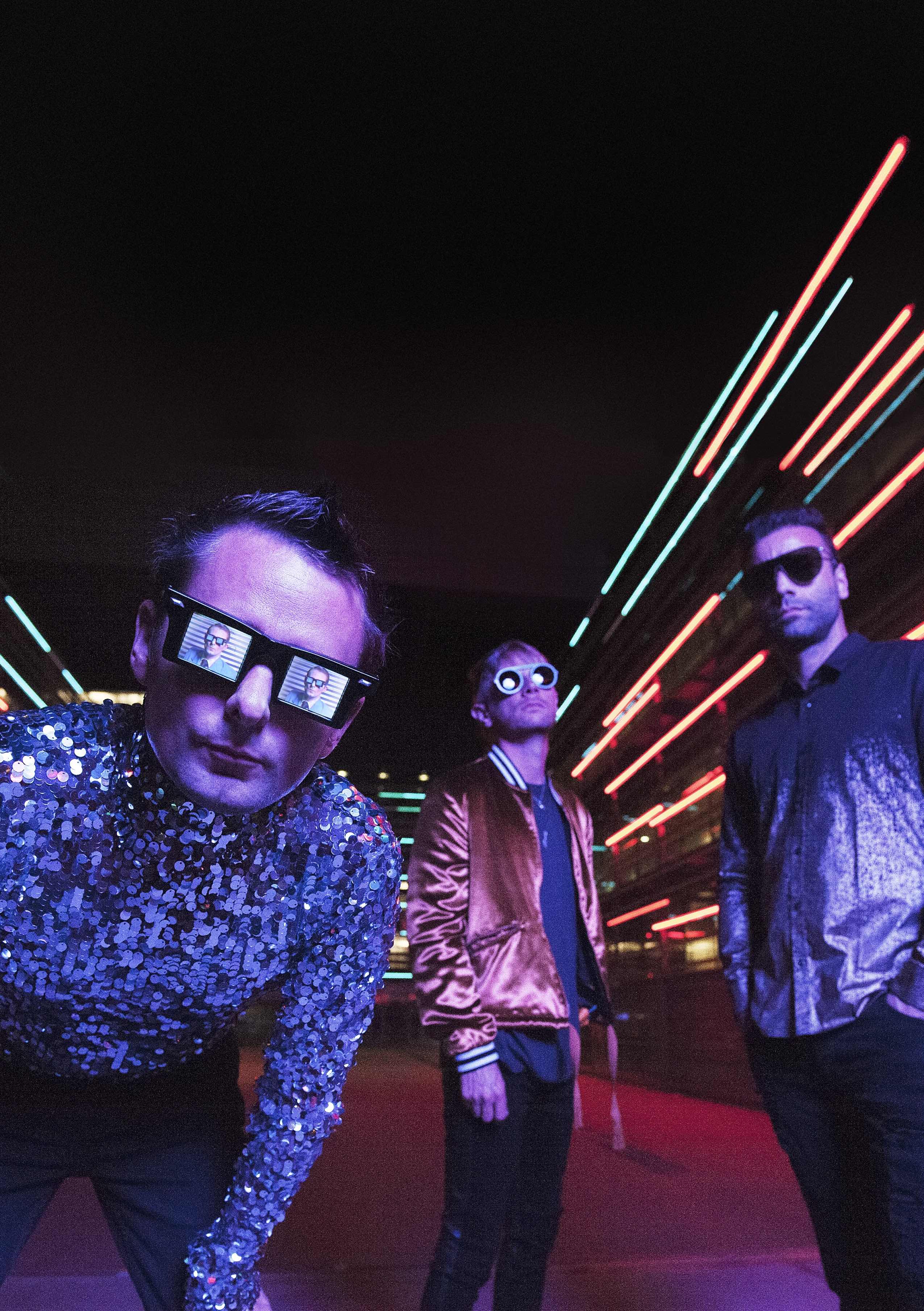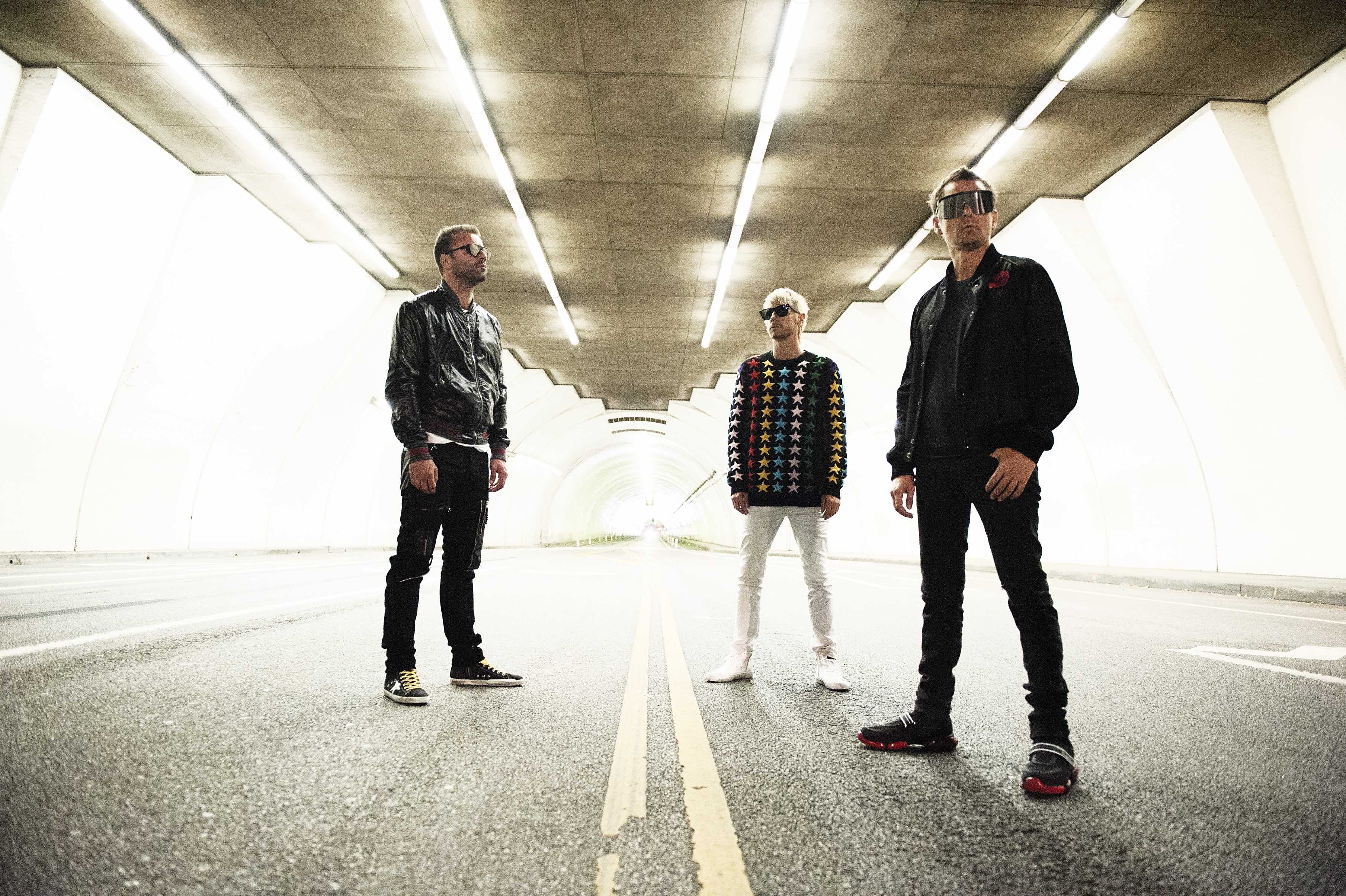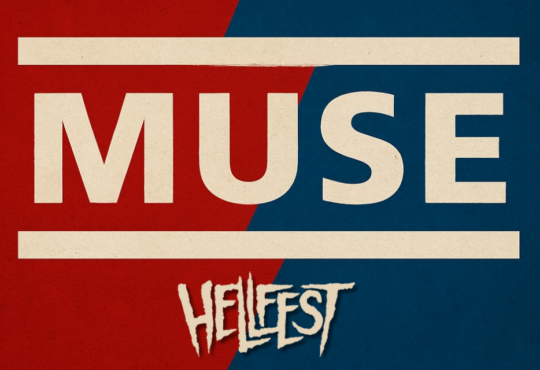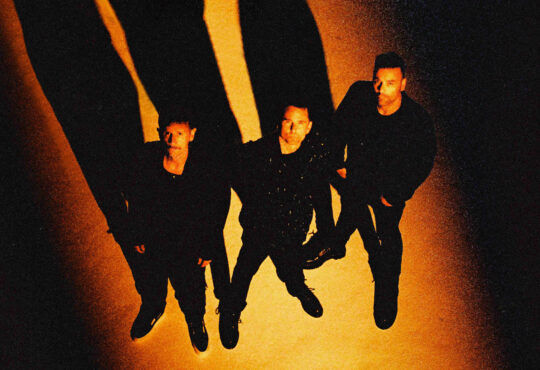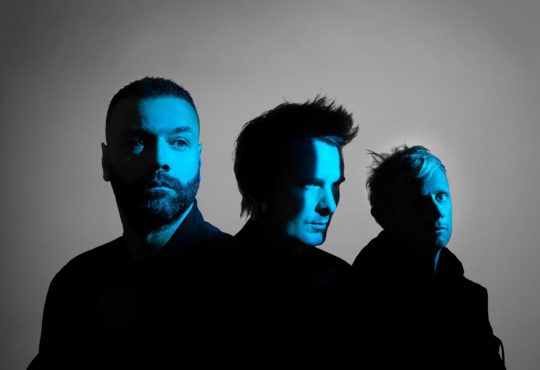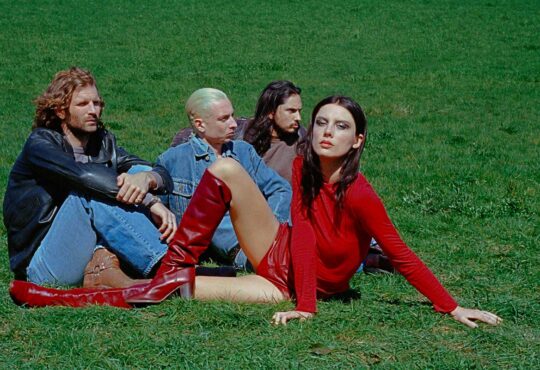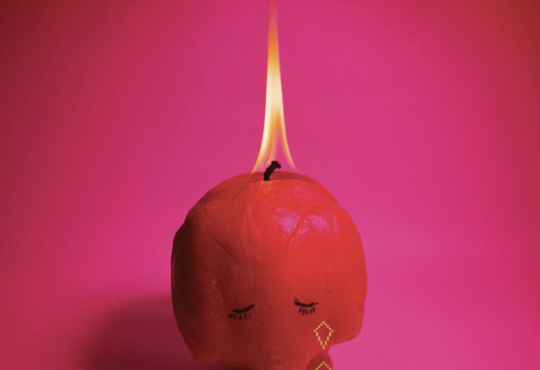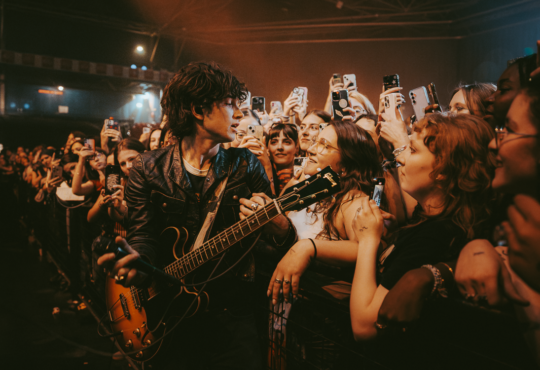Right before the release of their new album, “Simulation Theory”, Muse gaves us the chance to talk with them about this whole new record. We spent some times with Chris Wolstenholme, talking about the making of this new album. Let’s go!
Hi Chris! Welcome back in Paris. You released two songs before announcing your new record. Why did you took so much time before announcing the album?
Chris Wolstenholme (bass): After doing “Drones” we decided to record differently than we have record before. We didn’t really want to go in studio and to make an album in the traditional way to do it. The “Drones” tour was quite long and we were quite tired. I think we all needed a little bit of a down time I guess. But in the same we didn’t want to completely disappear neither. So, we decided that we’re gonna do 2 years of slightly light of touring and that gave us time to go to the studio here and there and just work some pieces. I think we just decided that we’re gonna put more emphasis on songs, rather than on an album. Because we felt that it’s the way that people are listening to music now. People don’t have the time to listen a all record now, they just listen some songs. Everything you do, and everything you release has to be around an album. We were kind of asking ourselves if it was really necessary. Why can’t release a song a year before the album comes out? I’m sure people would love to hear a song a year before the album comes out. I think that when we started to work on the first two songs, “Dig Down” and “Something Human”, we didn’t know at this time that we’re going to make a record. We just felt like that we’re gonna record some songs and if we’ll like them, we’ll release them. And maybe we’ll do an album in a couple of years, maybe those songs will end up on an album.
It seems like you changed your way to make music because how people are listening to music today.
Chris: I think that the thing we noticed with “Drones”, when the album was released, is that people music listening’s habits are settled as a pattern. For 15 years, people were still buying CD’s, or buying music on iTunes or downloading illegally music. But when “Drones” was released, we just noticed that most of the people are just using Spotify. Most of the people stream. That was kind of the first time that we noticed that. And the effect was that when we started to tour “Drones”, the first few shows, we played “Psycho”, which was the single, and people knew it and people went crazy. And then we played “Reapers”, which wasn’t the single. And people seemed like they didn’t know it. And it was not just “Reapers”, it was all of the songs that weren’t singles finally. So, we thought about how people are listening to music. The way that Spotify works. You type the name of a bands and you just have to the top tracks. And we modified the setlist and the setlist became more like a best of setlist. We thought that it was a bit of a shame because we were thinking that there was really good stuff on the album that years ago, people would have known and wanted us to play them live. So, we thought that maybe, people were more able to enjoy songs if we released them individually, instead of a single than an album. Not necessarily call them singles, because they are not all singles, they are just songs. But indeed, we release the first song of the album early 2017 and the album comes out late 2018. But we just thought that it would be interesting to try to put more importance on each songs.
It’s funny because, you didn’t work on this album as a traditional album but, in the end, there is a strong identity, almost a concept album.
Chris: Yeah, I think that there are certain things that anchor the album, visual things and sounds. When we started to work on the songs, the initial versions of the songs were sounding like if they were coming from different places. And I think that you could hear that if you listen to the all alternative versions of the songs that are on the album. A song like “Something Human”, at the beginning it was very very folk. And we added synthesizers and stuffs. And finally, when we started to work on the production of the album, we found this 80’s vibe that gave a cohesion on the album. Otherwise, it could have sounds like a collection of songs that someone put together. The funny thing is, and I think that it was a bit consciously, trying all these different experimentations and bringing those 80’s elements helped us to give cohesion on the songs. But, we really worked on the songs individually, trying to make the best choices for them without thinking about them as an album. It gave us a variety of songs that is really similar to what the 80’s was good at. Not only the music. If you look at some movies from this time, there was some things really retro about it and some things really futuristic about it. It feels like it was a bit like a fusion of many things. In music as well. I grew up in the 90’s and the 80’s were so uncool, so dreadful. But, looking at it a bit further now, it was an era that allowed many things in music. It was suddenly okay to use synthesizers, to not have a drummer and use drum machines. Finally, it was a really modern era.
Wasn’t that hard to find cohesion with working with different producers?
Chris: I don’t think so. We already worked with different producers on a record. We found it interesting. Obviously, working with Rich Costey was good because, we’ve already worked with him before, he knows us really good as a band and he knows the more “rock” part of the band very well. But we wanted to explore other elements and rather than trying to explore those things between us, we wanted to go with people who are really good in that. Somebody like Mark Alexander was very interesting because he has more of a r’n’b/pop background. It’s funny because, the way we put “Dig Down” together with him was so different than we used to work. We spent 3 days in Matt’s studio and assembling parts together and working on midi tracks. He wasn’t really interested in set us up as band and working to the song. He basically made us play the part. Then he spent a day in the studio, we came back a day after, he pressed play and we were like: “what the fuck is that ?!”. It was very interesting because he kind of interprets how he saw the song. There were still our parts, the song was the same but it sounded very different and I think that the choices he makes in terms of some sounds he would pick or some ways of doing things is just very different to things we would probably have picked. Sometimes it’s bad thing, sometimes it’s a great thing because you can go too far and feeling like somebody’s taking your song away from you. But actually, the song was the same and the feel of the song was the same. It sounds really cool.
Even if the lyrics are still dark sometimes, the album sounds happier than “Drones”. Is that something you really wanted to?
Chris: I think so! I don’t think that we wanted to “Drones” sounds so dark, but it does! It’s the problem when you make a record, you go on tour and you don’t really listen to it. I don’t listen to my record when I’m on tour. Even if one of our songs comes into the radio, I turn it off! I listened to “Drones” again recently and it was like: “it does sound really dark this album!”. When we switch from one album to another, we want to go somewhere else, we want to do other things. But yes the new one sounds more uplifting. He has this feeling of positivity I think.
To finish, our website is called “RockUrLife” so, what rocks your life Chris?
Chris: (laughs) Lots a thing rock my life! My kids rock my life, my girlfriend rocks my life. My family rocks my life.
Website: muse.mu




